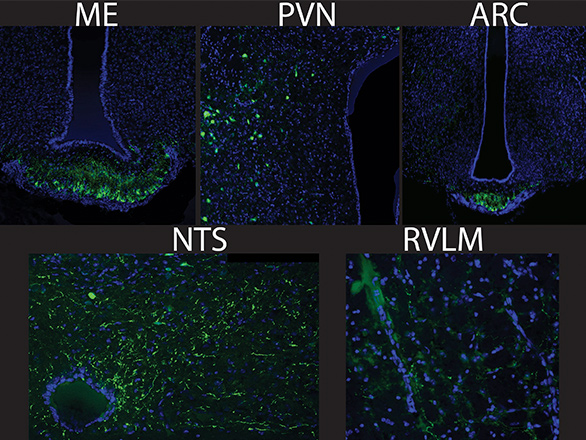
Our laboratory investigates neural circuitry mechanisms of cardiovascular metabolic diseases including hypertension, diabetes, non-alcoholic fatty liver diseases and Alzheimer’s diseases. We are currently interested in the physiological and pathophysiological role of the renin-angiotensin system (RAS), (pro)renin receptor (PRR) and prorenin as a novel pathway for brain RAS. Briefly, we are investigating the importance of brain RAS in neurons, astrocyte, and microglial cells in mediating angiotensin II formation, and the neural circuits from the forebrain subfornical organ (SFO) and the paraventricular nucleus of hypothalamus (PVN) to the brainstem autonomic regulatory centers.
